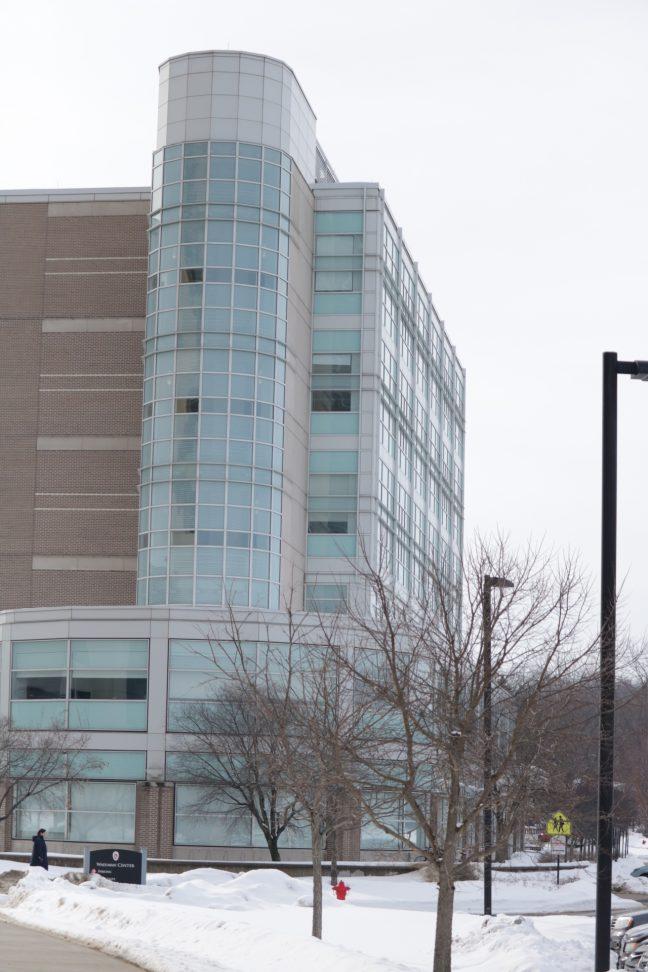In December 2022, the U.S. Congress passed the Consolidated Appropriations Act, ending the continuous Medicaid enrollment starting March 31, 2023.
Currently, all American citizens on Medicaid have not had to re-enroll or be re-evaluated since March 20, 2020. In response to the pandemic, Congress enacted the Families First Coronavirus Response Act, which required Medicaid programs to keep all people enrolled through the end of the public health emergency in exchange for enhanced federal funding, according to the Kaiser Family Foundation, a nonpartisan health policy organization.
Under the Consolidated Appropriations Act, all people currently enrolled in Medicaid will have to re-apply for healthcare coverage, according to the KFF.
Nationally, Medicaid enrollment has increased by 20.2 million since February 2020 — with 91.3 million enrollments as of October 2022. People were only removed from the program if they moved out of Wisconsin, passed away or asked to be removed.
Medicaid Director for the Wisconsin Department of Health Services Jamie Kuhn said a quarter of Wisconsinites will need to go through the process of re-applying for Medicaid coverage in a press conference.
University of Wisconsin professor of population health sciences Rebecca Myerson said across the nation, about 16 million people will lose their eligibility for Medicaid once the continuous enrollment provision ends.
The unwinding process will start in June 2023 and continue through the next year, according to the press conference.
People enrolled in Medicaid programs will receive a letter alerting them of their renewal period as well as texts and emails if their contact information is up to date on the Medicaid website.
Kuhn said no individuals should renew their coverage yet but should wait for a letter with specific instructions on when they will need to renew their healthcare coverage. For some members, this letter may not come for nearly a year, according to Kuhn.
An additional letter will contain the renewal packet and will be sent out approximately 45 days before the renewal date. People seeking coverage can renew their coverage only as well.
“Our collective priority is to support people currently enrolled in our programs,” Kuhn said.
A large concern with this renewal process is the number of people that may lose their eligibility. In Wisconsin, it is estimated that around 300,000 people would lose healthcare coverage, increasing the uninsured population by around 50,000, according to the Urban Institute.
Medicaid programs, such as BadgerCare Plus, are critical to ensuring that individuals have access to necessary medical services, according to Myerson.
The Federal Department of Health and Human Services estimates that of those who lose their eligibility, 85% of them could lose coverage simply because they did not know they needed to re-apply. Individuals with greater health challenges and lower education will be less aware of the new re-enrollment rules, Myerson said.
People may become ineligible for coverage due to a change in income, age or residency in another state. For more information about healthcare coverage options individuals should call the Wisconsin Social Services Hotline, according to Myerson.
States can collaborate with community providers and health organizations to conduct outreach to those enrolled in Medicaid to ensure they get all the information they need to re-apply, according to the KFF.
Medicaid churning is another concern for enrollees. This occurs when people move in and out of Medicaid coverage, leading to periods of being uninsured, delayed care and less preventive care. This results in higher administrative costs and higher monthly healthcare costs, according to the U.S. Department of Health and Human Services.
Alerting enrollees is the top priority, as ensuring people have access to services that may only be accessible through Medicaid programs is important, Kuhn said.


